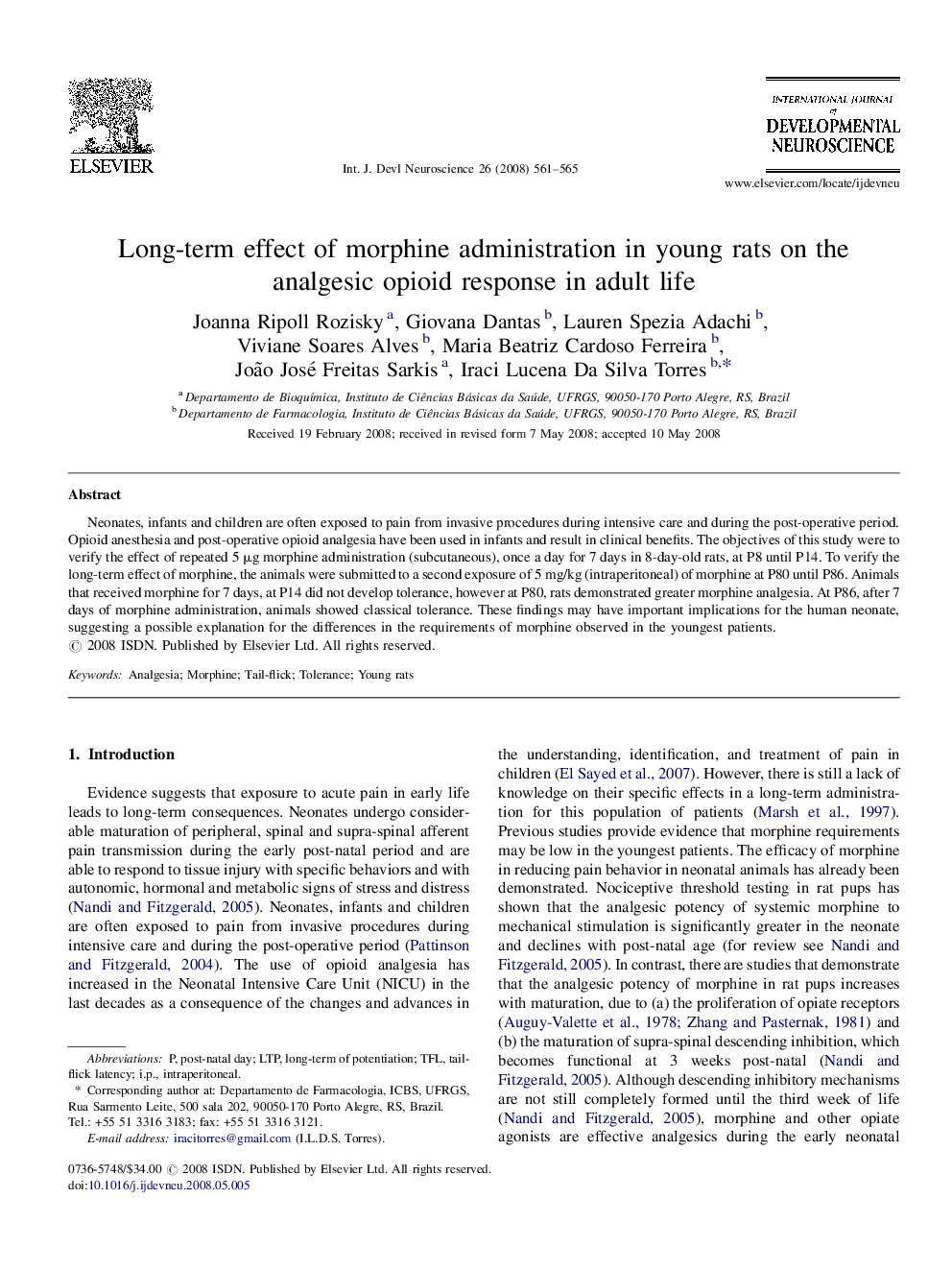| Article ID | Journal | Published Year | Pages | File Type |
|---|---|---|---|---|
| 2787064 | International Journal of Developmental Neuroscience | 2008 | 5 Pages |
Neonates, infants and children are often exposed to pain from invasive procedures during intensive care and during the post-operative period. Opioid anesthesia and post-operative opioid analgesia have been used in infants and result in clinical benefits. The objectives of this study were to verify the effect of repeated 5 μg morphine administration (subcutaneous), once a day for 7 days in 8-day-old rats, at P8 until P14. To verify the long-term effect of morphine, the animals were submitted to a second exposure of 5 mg/kg (intraperitoneal) of morphine at P80 until P86. Animals that received morphine for 7 days, at P14 did not develop tolerance, however at P80, rats demonstrated greater morphine analgesia. At P86, after 7 days of morphine administration, animals showed classical tolerance. These findings may have important implications for the human neonate, suggesting a possible explanation for the differences in the requirements of morphine observed in the youngest patients.
